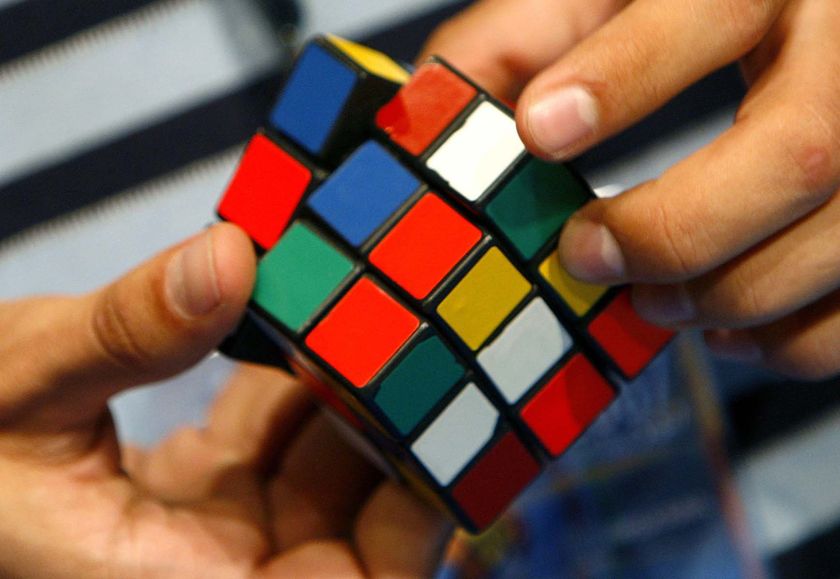Murray, UT—Responding to what they call a “school-wide plague” and“epidemic,” administrators at AISU released a statement condemning the growing use of Rubik’s Cubes in the school. The popularity of these small, multicolored puzzles has steadily increased since mid-2014, until now there are unverified reports of middle schoolers setting up shrines to Rubik’s Cubes and worshipping them.
“This will not be taken lightly,” said Mrs. Powell, a co-author of the statement. “I actually used to like Rubik’s Cubes, until the demand for them went up and up and up, and now the better ones cost $30! I’ve seen stands in the school selling Rubik’s Cubes for $15 apiece. This is unbelievable. First of all, you can buy them online for $12.50. And second of all, they are giving no money back to the school, whose space they use to sell the devilish cubes.” Mrs. Powell has also drafted a petition to outlaw the sale and possession of Rubik’s Cubes, though critics of her plan claim that this would only strengthen the black-market demand and lead to smuggling and dangerous, unregulated cube-trafficking.
Perhaps the statement’s strongest language condemning Rubik’s Cubes is the accusation that they discriminate against color blind people. “They can never tell when they’ve finished it,” the document astutely observes. “They may think they have, but as it turns out, they had been seeing the reds as greens and yellows as purples the whole time. Come to think of it, that actually wouldn’t cause a problem, because it would still be finished, but in the wrong order. Or maybe that’s not how colorblindness works. Does it just look like one big gray mess? We’re not actually sure. You know what, just pretend that this paragraph never happened.”
The statement goes on to quote Ernő Rubik, creator of the Rubik’s Cube, who claims that his creation actually destroys brain cells. “People who use them waste so much time figuring out the algorithms and the fastest way to spin them,” he says, “and the brain puts so much effort into memorizing all those things, that before long you can’t remember such things as birthdays, people’s names, reasons why you walk into a room, things you’ve already listed in a list, and birthdays.”
Reactions to the statement have been mixed, with many students buying more Rubik’s Cubes out of spite. Some students, on the other hand, are complying with the school’s request out of a sense of pity. “I don’t have much against Rubik’s Cubes,” one student said, “but the administration has reduced themselves to begging, and it’s actually kind of embarrassing. So I’m selling my cubes and using the money to buy violent video games. That’s probably much better for my long-term growth and development anyway.”


May 4, 2016 at 2:31 pm
THIS IS PREPOSTEROUS!I am a doofus!LikeLike